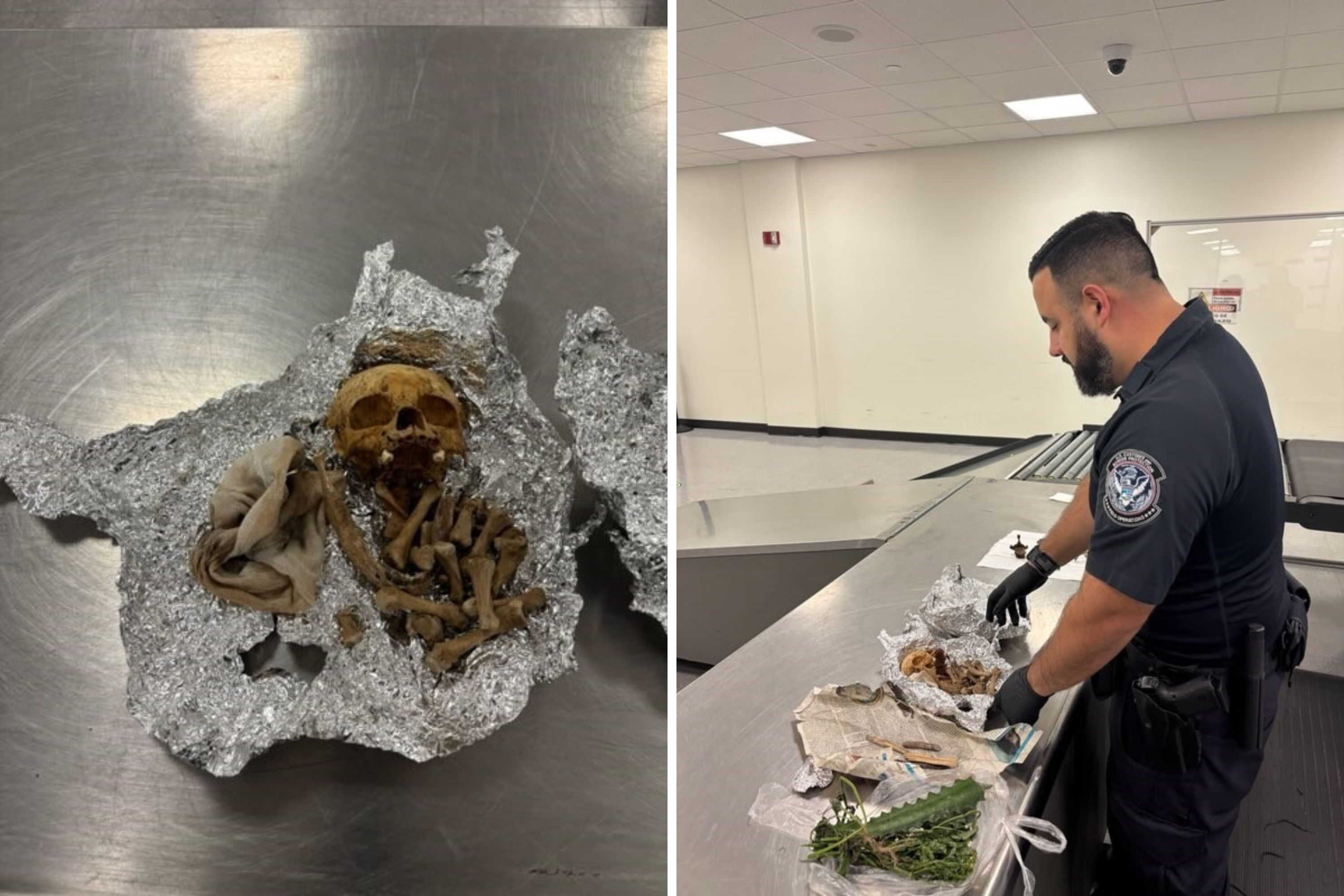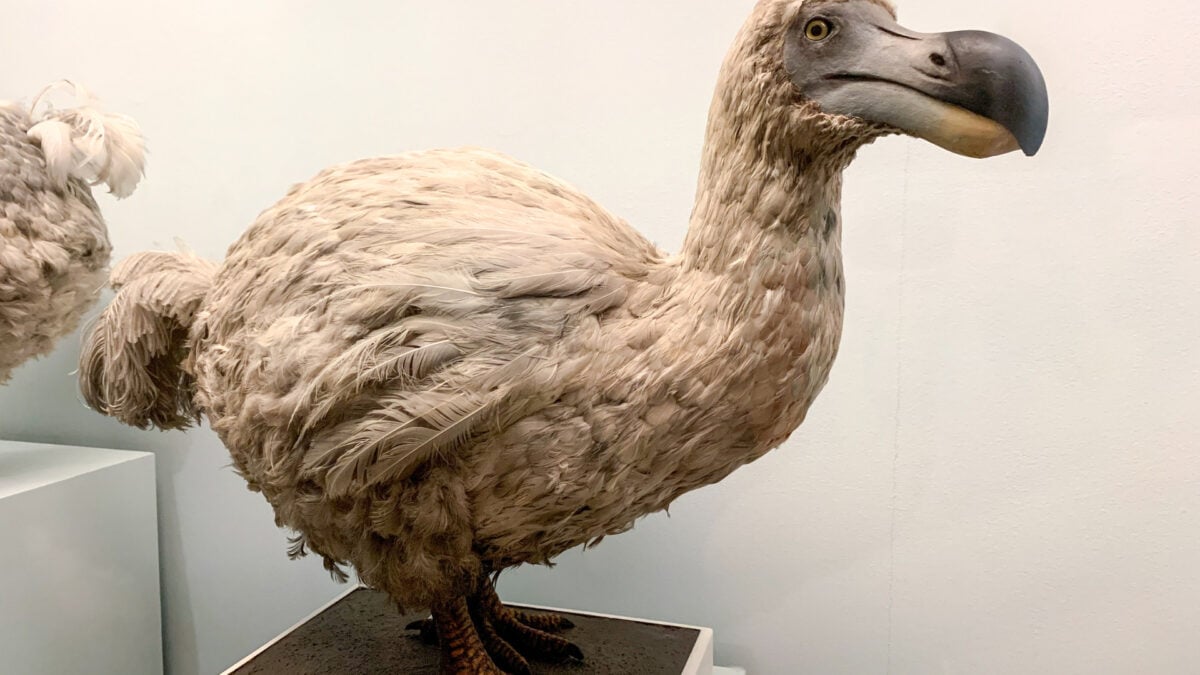
Authorities at Tampa International Airport made a grisly discovery this weekend when U.S. Customs and Border Protection officers found a human skull and several bones inside a passenger’s carry-on bag.
Newsweek has contacted CBP for comment via email
Why It Matters
The case highlights the unpredictable nature of international travel inspections.
What To Know
The bones and skull were found wrapped in foil during a routine baggage check. A passenger had declared 10 cigars in their luggage.
However, CBP Agriculture Specialists uncovered “prohibited plants, undeclared cigars, and a foil-wrapped duffel bag containing what looked like human remains, including part of a skull,” according to a Thursday social media post from Carlos C. Martel, the director of field operations for CBP in the Miami and Tampa offices.
The passenger told officers the remains were intended for ritual use.
Photos shared by CBP showed what looked like a skull and vertebrae partially wrapped in aluminum foil. Other images showed officers wearing gloves and inspecting luggage on a table, with the seized items laid out in evidence bags.
“At CBP, we never know what baggage may hold, but smugglers should know we’ll always have a bone to pick,” Martel said in a post on X.
CBP said the bones posed serious health risks and were destroyed.
Traveling with human remains requires meeting strict federal guidelines. According to the Centers for Disease Control and Prevention (CDC), passengers bringing remains into the U.S. must present a death certificate, except in cases involving cremated or embalmed remains.
In addition, the agency notes that all non-cremated remains must be secured in a leak-proof container to prevent the spread of potential pathogens.
Even when infectious disease is not listed as the cause of death, public health agencies warn that blood and body fluids may still pose risks to handlers.
The CDC explains that cremated remains, embalmed bodies, and dry, sanitized bones are typically allowed into the U.S. without special permission. By contrast, the remains of people who died from infectious diseases—if not embalmed or cremated—are subject to tighter rules and may require a CDC import permit prior to entry.
“This requirement is intended to protect the public as well as federal, airline, and airport employees from potential exposure to blood and other body fluids during transportation, inspection, or storage of human remains,” the CDC states on its website.
While no permits are necessary for “clean, dry bones or bone fragments,” the agency cautions that a permit may still be required if the remains are imported for “any purpose other than burial, entombment or cremation.”
The incident in Florida comes just weeks after a separate case at Washington Dulles International Airport, where CBP reported stopping a Las Vegas woman from smuggling nearly 59 pounds of marijuana overseas.
Authorities said Aleshia Anne Pinheiro, 42, faced felony narcotics charges after officers seized what they valued at nearly half a million dollars in drugs.
What Happens Next
No further details were released about the passenger, including nationality or possible charges.



